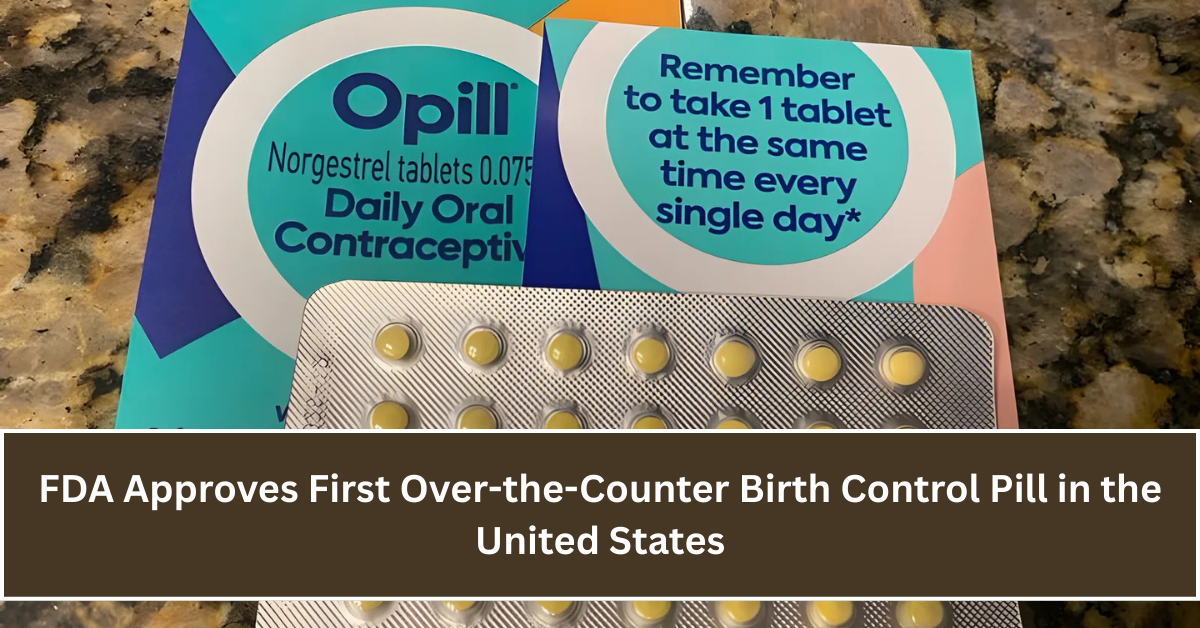The FDA’s recent approval of the first over-the-counter birth control pill marks a significant milestone in reproductive health care in the United States. This groundbreaking decision opens new doors for millions, offering easier access to contraceptives without the need for a prescription. It aims to empower individuals to take control of their reproductive choices with unprecedented convenience and privacy.
This historic approval reflects ongoing efforts to destigmatize contraception and improve public health outcomes. With this new option, barriers such as limited clinic hours, lack of healthcare providers, and concerns about privacy are addressed, especially benefiting younger adults who seek flexible and confidential methods of birth control.
What the FDA Approval Means for Birth Control Access
The Food and Drug Administration’s authorization means birth control pills can now be purchased at pharmacies directly, much like common over-the-counter medications. This shift transforms the traditional birth control landscape, reducing the reliance on doctor visits and prescriptions, which often delay or obstruct timely access.
For many, this easier access could lead to improved adherence to contraceptive use, reducing unintended pregnancies. It also helps bridge the gap for those living in rural or medically underserved areas where healthcare providers are scarce. This approval underscores a broader commitment to reproductive freedom and equity in healthcare.
Details About the Over-the-Counter Birth Control Pill
The newly approved pill contains a low dose of a progestin hormone, which works primarily by preventing ovulation. It is designed for individuals to safely and effectively manage their birth control needs without medical supervision, as the risk of serious side effects is minimal for most users.
Unlike pills that combine estrogen and progestin, this progestin-only option presents fewer contraindications, making it a safer choice for individuals with certain health conditions. Its packaging includes clear usage instructions and warnings to ensure consumers make well-informed decisions.
How This Impacts Younger Adults and First-Time Users
Younger adults, particularly those navigating the challenge of accessing healthcare independently, stand to benefit the most from this new availability. First-time users often face hurdles such as awkward conversations with providers or the logistical difficulties of arranging prescriptions. The over-the-counter option offers a discreet solution aligned with their preferences for autonomy and convenience.
This change may also encourage more open conversations about contraception and sexual health among young people, reducing stigma and misinformation. The accessibility of birth control without prescriptions could foster healthier attitudes and responsible behaviors regarding reproductive choices.
Comparing Prescription vs. Over-the-Counter Birth Control Pills
| Feature | Prescription Birth Control Pills | Over-the-Counter Birth Control Pills |
|---|---|---|
| Access | Requires doctor visit and prescription | Available directly at pharmacies |
| Cost | May be covered by insurance | Typically paid out-of-pocket |
| Medical Oversight | Provided through healthcare provider | No direct medical supervision needed |
| Types Available | Variety including combined and progestin-only | Currently limited to single type of progestin-only pills |
| Convenience | May involve delays and scheduling | Immediate purchase and use |
Potential Challenges and Considerations
While the approval is widely celebrated, certain challenges remain. The lack of clinician guidance means users must understand side effects, warnings, and what to do in case of missed doses. There is also the question of affordability, as over-the-counter options may not be covered by health insurance plans.
Additionally, some individuals may require more comprehensive contraceptive counseling or alternative options not available over the counter. It is important for users to have access to resources and healthcare professionals for questions and follow-ups to ensure safe and effective use.
How Pharmacists Are Preparing for Over-the-Counter Distribution
Pharmacists play a pivotal role in this new birth control distribution model. Many have undergone specialized training to assist customers responsibly, providing information about the pill, verifying eligibility through questionnaires, and answering common concerns. This ensures consumers receive guidance akin to clinical settings, even without a prescription.
Pharmacies are also updating their protocols and inventory to accommodate this new product line. This preparedness will help streamline the buying experience, maintaining privacy and reducing stigma for customers seeking birth control pills.
Impact on Public Health and Unintended Pregnancy Rates
Experts anticipate that over-the-counter birth control availability will positively influence public health by lowering rates of unintended pregnancy. Easier access encourages consistent and correct use of contraception, which directly correlates with fewer unplanned pregnancies and associated social and economic benefits.
Long-term, this development aligns with goals to improve reproductive health outcomes, empower individuals to make informed choices, and reduce disparities in healthcare access. It also supports broader educational efforts about sexual health and responsible family planning across communities.
What to Know Before Purchasing Over-the-Counter Birth Control Pills
Before choosing over-the-counter birth control pills, consumers should review their health history for conditions like blood clots, stroke, or liver disease, which may affect the pill’s safety. Although progestin-only pills have fewer risks, a self-assessment or consultation with a healthcare provider is advisable.
Reading the product label thoroughly and understanding the instructions is critical. Customers should monitor for any side effects and have access to medical care if necessary. Maintaining an open dialogue about contraception with trusted healthcare providers remains important despite the over-the-counter status.
The Future of Birth Control: Expanding Access and Innovation
The FDA’s approval of over-the-counter birth control pills is just the beginning of a transformative era in reproductive health. As demand grows, more options are likely to become available, including a wider variety of birth control methods without prescriptions. This progress reflects advances in medical research and a commitment to patient-centered care.
Innovation in delivery systems, education, and digital health tools will complement easier access, helping users stay informed and supported. Ultimately, expanding options empowers individuals to choose the birth control that best fits their lifestyle and health needs, enhancing autonomy and well-being nationwide.




